Your shopping cart is currently empty.
Consultant Interview Tips

Consultant Interviews can be very competitive and you will face pressures that you have not encountered before. On this page, you will find useful information for your preparation.
Structure Of The Consultant Interview
Recruitment for consultant interviews is different to the recruitment that is carried out for other grades. The Trust is no longer recruiting someone who will be passing for a few years (and in some cases a few months) but a long term asset who will be able to work within the existing structure to help provide the best service to patients by taking relevant initiatives and by co-operating with other colleagues. In reality they are recruiting a colleague more than a doctor.
For that reason, consultant interviews are as much an exercise in gauging your personality as they are a tool in measuring your level of initiative, awareness and motivation.

Need more help preparing for your consultant interview?
Check out our consultant interview skills courses
The Panel

Typically, you will face a single panel of up to 8 people. That panel may include:
You should make every effort to find out who will be on the panel, as this will strongly direct the way you need to orientate the answers to some of the more difficult questions. For example, the answer to the question "Do you feel that the increasing role of nurses is a benefit or a danger to the medical profession?" will obviously be different depending on whether there is a nurse on the panel. So, if they haven't told you who will be on the panel, call a secretary and find out!
The Consultant Interview Questions
As a consultant, you will be expected to function as a safe doctor, but also, for the first time, to take responsibility for a team at a high level - all this whilst working in harmony within an already established team. This includes taking a proactive stance towards teaching, a logical and safe approach to resolving problems and conflicts, a good understanding of the environment in which you will work, etc. This is a big step from your SpR job interview, where interviewers might have been mostly concerned with your ability to be an effective trainee.
For this reason, consultant interviews tend to have a more informal style and contain questions of a more personal and managerial nature, which will help them understand your motivations in more depth and gauge whether you will be a good fit for the team. Consultant interview questions tend to be subdivided as follows:
- Your CV
This would involved asking you to summarise your training or picking on particular aspects of your experience. This would either aim to clarify some obscure areas of your CV or to ask you to defend lack of experience important areas such a research, audit, etc. For these questions there is no substitute for spending time analysing your past experience and training so that you are well prepared. - Your interpersonal and other non-clinical skills
This would involve questions on team playing, leadership, communication skills, ability to deal with stress, etc. Do not assume that the most basic questions do not come up at consultant interviews. Questions such as "What are the attributes of a good team player?" are making a come-back on the consultant interview scene. - Your managerial skills and ability to resolve difficult situations
As a junior doctor, your duty was mainly to report problems to a senior colleague. Now, as a consultant, you will actually be required to deal with it. No more passing the buck, you must take responsibility. Whether you are dealing with an underperforming colleague, a colleague under the influence of drugs or drink or a consultant who is breaching protocols or guidelines, you will need to demonstrate that you are able to consider all aspects of the issue including the patients' perspective, the reporting and legal aspects, and the colleague's perspective. - Your interest in clinical governance and quality assurance
Clinical governance and Good Medical Practice are crucial aspects of being a doctor. As a senior doctor, you will have personal responsibility to make sure all aspects are implemented and applied consistently. You will need to demonstrate a good understanding not only of the topic discussed but also how they impact on your job from a practical perspective. This would include questions on NICE guidelines, NSF, risk management, research and its importance, audits, etc. - NHS issues and politics
As a senior doctor, you will need to form opinions about current issues in order to determine how your unit should react to them. For example, how will MMC affect you? What about Darzi? Patient Choice? ISTCs? Depending on the specialty that you are applying for the topics will vary but you will all be required to demonstrate a good understanding of the main issues and how they affect you and your specialty.

Applying for a consultant post?
Our courses prepare you for all aspects of the consultant interview.
Consultant Interview Tips
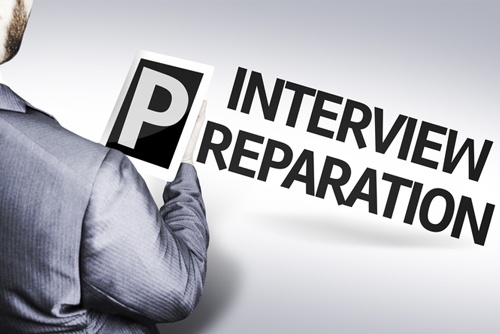
TIP 1: Have an effective preparation period
Many candidates either under-prepare or over-prepare for their medical interviews. Most people also prepare in the wrong way.
Under-preparation: Being under-prepared is often the result of the misconception that, because interviewers can ask so many different questions, it is very difficult to prepare for anything. As a result, answers become disorganised, contradictory and lengthy, the candidate loses his/her way in unnecessary details and misses out crucial opportunities to put across his/her skills in a positive light. Other candidates also wake up too late or leave it until they get short-listed to start thinking about their interview. In many cases, it is too late.
Over-preparation: Over-preparation often combines with poor strategy and results in candidates rehearsing answers until they are perfect. People who make this mistake are easily thrown off balance by questions they have not prepared; the answers they give sometimes also do not quite match the question asked. Generally, they come across as bad listeners and are unable to deviate from their prepared answers.
Wrong preparation: Many candidates believe that preparing for an interview consists principally in taking a list of hundreds of questions and testing their ability to come up with "something" quickly. Rehearsing answers to many questions is the final step of the process, where you pull together all the elements that you have gained during your preparation. Think about it: the first day you learnt to take blood, you didn't do it 100 times in 10 minutes... Similarly, don't try to answer 100 questions in 10 minutes as it will only result in making you sound vague on the day.
What is the right preparation for a medical interview?
Spend time on your CV: First you should spend some time looking at your experience and your CV. The best candidates are those who are able to provide personal answers. This is only possible if you know what you have achieved. Aside from that, it is embarrassing to be asked a question on your CV and not be able to answer it.
Spend the time to know yourself: Many interview questions relate to your ability to exercise one skill or another. Some of these questions are so common that there is no excuse for you not to have an answer. Interviewers can sometimes be unforgiving. Many candidates would not be able to answer personal questions if they were being questioned by their own friends in a relaxed environment. If you cannot explain what makes you a good communicator in your living room, in 5 minutes, when your best friend asks you about it, you cannot expect to be able to answer that question under pressure, in 2 minutes, with eight people staring at you. Think about what you are good at and what makes you good at it; think about examples of situation where these strengths have had a strong impact, etc. The more thinking you do beforehand, the less thinking you will need to do on the day.
Spend time looking at key questions: There is little value in looking at hundreds of questions too early. You will only perpetuate your mistakes and will not teach yourself to think about the question and its different angles. Instead, if you have time, try to pick one theme per day (research, teaching, confidentiality, etc) and look at different questions that relate to that theme. You will learn to look at the same information in different ways and you will teach your brain to make the connections that will enable you to think laterally at an interview. You should spend at least 5 minutes on each question, taking the time to derive good content and to organise your thoughts. Our courses are specifically designed to help you in this process by giving you the tools and the direction you need, which makes you save time in your preparation. Our experience shows that, on average, successful candidates spend 15 to 20 hours preparing for their interview.
Practise: Only once you have done this preparation should you practise your answers someone else, or by talking to your mirror/walls. Doing it too early will only serve in either giving you a false sense of security or in making you panic depending on how confident you are.
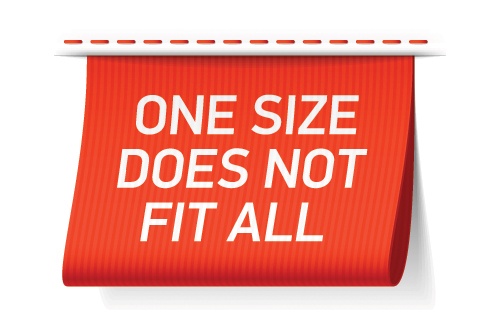
TIP 2: Do not assume that standard answers WILL make you succeed
Many candidates believe that by regurgitating a ready-made answer, they will get the job. This is a myth. You should not believe anyone (including some senior doctors) who tell you that you will get the job by learning a standard answer. What will really make the difference is the personal style that you adopt in formulating them and how you back up your claims with relevant and well developed examples. This is also what makes our coaching so successful and so different. We work with you to extract the right information at the right level of personalisation. Your answer must be UNIQUE, not the same as hundreds of others.
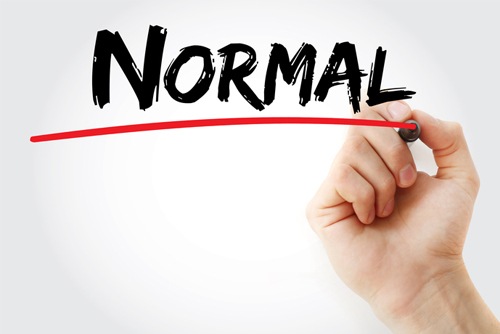
TIP 3: Do not try to be different by looking for unusual answers
Many candidates believe that they need to be different to stand out. This makes them scared of addressing some questions and they live in fear of sounding boring. As a result they try to be clever and to find "unusual answers". This is a dangerous game. What makes you stand out is not the fact that the content of your answer is wildly different to your competitors' answers, but the manner in which you express and back up good ideas, and the confidence that you have in your delivery and in your opinions. Consultant interviews (and generally speaking, medical interviews) are not about being original; they are about being all-rounded.
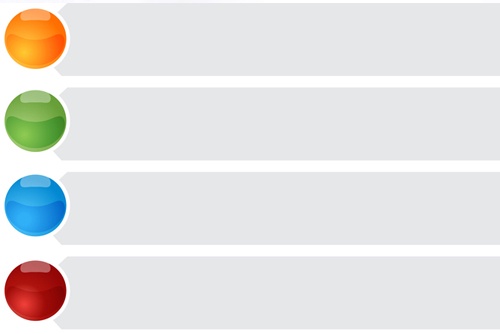
TIP 4: Organise your answers
Many candidates' answers are made up of a long list of ideas, most of which are irrelevant or not backed up. There is no point putting across 20 ideas if the average human being can only remember 3 or 4 ideas at a time. You will just drown your interviewers in a mass of information they can't digest. As a result they will either lose interest and start looking through the window, or they will get a headache trying to make sense of it all. Put yourself in their shoes! They have been sitting there listening to the same old answers from everyone. Make their job easy, don't make them think too much, organise the information for them. In our experience, those who get the jobs are not those who have an absolutely flawless content in their answers. They are those who have a good structure and make them personal, even if they only have 70% of the expected content.

TIP 5: Be personal in your approach
For each question, there are a number of points that can be raised. Most people who have prepared will automatically come up with these points and, in order to make a difference, you will need to personalise your answers otherwise you will sound the same as everyone else. Depending on the question that you have been asked, this can be achieved in different ways.
- If the question is about your interpersonal skills, try to bring in a few examples that demonstrate your experience. For example when discussing team playing, describe situations where you gained experience of team work. You should not go into too much detail but be specific enough to be credible.
- Steer clear of definitions and grand statements. An interview is a conversation, not a speech or a verbal essay. You need to appear natural and confident in what you say. Do not be scared of expressing your ideas in your own words. For example, when is the last time you used the word "flourish" at home or at work? So why insist in using it in your description of Clinical Governance? Too many people try to explain simple ideas using pompous words because they feel it makes them sound better. In reality it makes them sound vague, theoretical and, sometimes, confused ... the interviewers are confused too.
- Don't be afraid of expressing how you feel, what you liked, why you enjoyed it, etc. They want to recruit human beings, not clones. Also, talking about feelings helps bringing out your enthusiasm and passion for what you do. It is very difficult to be passionate when talking about cold facts. Facts are important to sell your credibility but not your motivation

TIP 6: Stop obsessing about your body language
There is little point in worrying about how you cross you fingers or your legs if what comes out of your mouth makes no sense. Body language is not part of the marking sheet interviewers have. In fact most people will ignore your body language unless it is really bad, in which case it most probably means that you have very little confidence and therefore that your answers are also very bad.
Most people have a normal body language and interviewers will make allowances for the fact that you are a bit nervous. If you spend the time preparing well for your interview, you will gain much more confidence in yourself and your body language will follow naturally. The more you think about your body, the less you are able to think about your answers.

TIP 7: Do not spend months learning the minute details of each possible NHS issue
There is always a danger in knowing too much about one subject: they can ask you for more detail until you fall on your own sword. At our last count, there were over 95 possible NHS issues you could be asked at an interview. Even if you spend just 20 minutes on each, it would still take you over 30 hours of work. And that's just for the basics.
Instead concentrate and spend some proper time on 5 or 6 key issues of importance either because they are of actuality or because they are of close concern to your specialty. But do not confine yourself to learning the basic facts otherwise you will go back to the realm of ready-made answers. At medical consultant interviews, you will be expected to show an understanding of the issue but also of it consequences and practical applications. So spend your time wisely by discussing the issues with colleagues and debating them. You will then start thinking about those issues in different ways and will gain a personal understanding of them that will enable you to discuss them freely at a medical interview.
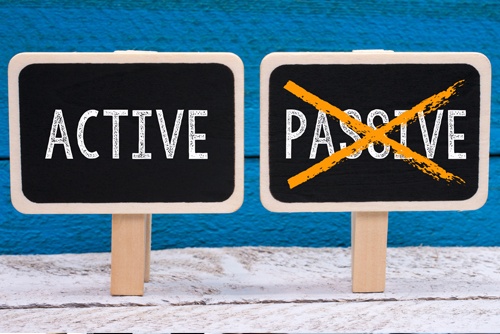
TIP 8: Use the active tense when you describe your achievements/experience
Most candidates who fail at NHS consultant interviews get feedback of the type "You said all the right things but somehow it didn't quite come across" or "You came across too much like a registrar". Usually this is caused by use of vague language, or language which does not convey accurately the individual's contribution.
So, for example, a typical candidate would say "I attend MDTs on a regular basis". The panel member would have two issues with this: (i) what do you mean by "attend"- do you actually contribute? and (ii) what does "regular" mean? Rephrasing this sentence as "I present complex cases at weekly MDTs" would give a more active feel to the sentence and would show the candidate as being more in control.
Another example of a passive sentence is "I am involved in teaching on a regular basis". The use of the word "involved" merely conveys that the candidate is present but does not describe any of the contribution he or she is making. There is a difference between simply running through slides which were handed out to you, and actually writing new material for your lectures, both of which fall into the category of "being involved". This sentence "I write and deliver lecture to GPs on a quarterly basis on topics such as x, y and z", for example, would have a far greater impact.
Most candidates are worried about bragging and, consequently, try to tone down their contribution. They also allow the whole team to take credit for what is often their own personal achievement. So for example, candidates would say "I was involved in drafting a business case" when what they should really say is "I drafted a business case on xxx for review by the lead clinician and the managers, which was subsequently agreed and implemented with minimal modifications".
Using a more active style of wording makes the difference between an "okay" candidate and a confident candidate who can demonstrate they value they can add to the department.
Worried about the questions you might be asked in your consultant interview?
Do you want to prepare for your consultant interview in a friendly and constructive environment?
Do You Stand A Better Chance If You Are Local?
In theory, everyone has an equal chance of being recruited in the sense that all interviewers should keep an objective mind in their assessment of each candidate. However, like everywhere, some people are 'more equal than others'.
It is true that, statistically, local candidates have a better success rate at consultant interviews. It is also true (and we have seen several obvious cases of this), that some interviews appear to be fixed and that, in some cases, external candidates have only been invited to make up the numbers and that the job has been advertised for one particular candidate. However in the vast majority, the process is fair, and we have seen many external candidates beat the local candidate purely on the strength of their interview.

Why Do Locals Tend To Be More Successful?

If you consider the situation from a common sense perspective, the interviewers are only trying to consider whether you will be competent and whether you will fit in the team. They will obviously have a better idea of those skills in relation to a local candidate that they know well than in relation to a complete stranger, even if it is subconscious. As a result they may be more lenient in respect of interview mistakes. However there are three things to consider:
- They might not like the local candidate in the first place.
- Internal candidates often make the mistake of being complacent. They assume everyone knows them and loves them, and often fail to sell themselves effectively.
- Ultimately, if the internal candidate was bad at the interview and an external candidate complains, the Trust will need to justify choosing the internal candidate.
So in conclusion, local candidates at consultant interviews tend to be favoured provided their prior experience has been positive. But many let themselves down by taking their appointment for granted. They find at their own expense that a better trained, slicker candidate has overtaken them in the process. In our experience, with the right coaching, 30% of external candidates who originally felt they would be at a disadvantage because they were not local ended up being successful. There is hope out there!
Want to learn more about NHS issues for your consultant interview?
The ISC medical consultant interview course focuses on the current NHS hot topics so that you don't waste time learning unnecessary detail
Why Do Some Local Candidates Fail?
In practice, the main factor making local candidates fail is that they take it for granted that they will be appointed by their own colleagues. Consequently they do not put so much effort into the interview, their answers tend to be vague (typically: "as you know I have done quite a lot of research..." and they make the assumption that the interviewers won't mind since they have been working together for some time. In practice there will be people on the panel whom you will not know and they will get annoyed and will feel excluded if you talk to your colleagues and almost ignore everyone else.

How Can You Optimise Your Chances If You Are A Local Candidate?

Do not assume that you will get the job. Assume that you know no one on the panel and back up everything you say by drawing experience from your CV. If you need to talk about a project that you have done with a member of the panel, talk about it as if he was not there.
How Can You Optimise Your Chances If You Are Facing A Local Candidate?
Your best bet is to assume that the local candidate will not essentially be fully prepared or will fall into the trap of taking the outcome of the interview for granted. You should also have some faith in the system. There are plenty of "non-locals" who get appointed simply because they can demonstrate that they have a higher calibre. Have faith in yourself too. If you turn up at the interview already defeated then you stand no chance of appearing confident.
Obviously no one is totally immune from a situation where the decision has already more or less been made. There is this saying "You can't say the right thing to the wrong person" i.e. if someone has decided that they don't like you or don't want you, then no matter what you say they will not vote for you. In practice this has two consequences for you:
- Make sure you create a good first impression - it can decide the whole interview.
- If you feel they are hostile (i.e. you feel they have already made their choice) then don't panic and try your best. You may not get the job but it will be good training for other interviews. And you never know, you may have had the wrong end of the stick and they may have just been testing your resilience under pressure.

Are you a local candidate and want to learn what traps you should avoid?
Are you an external candidate who wants to beat a well-positioned local candidate?
Over 85% of our clients get a substantive post within 2 interviews
What Role Does The CV Play?
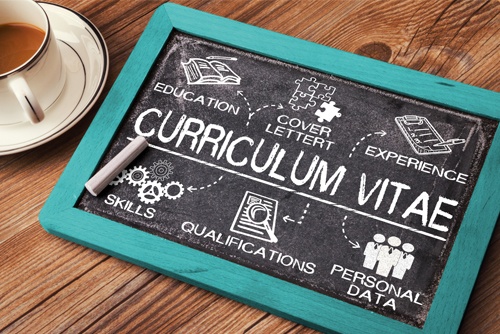
In the context of consultant interviews, CVs are mostly used for the purpose of shortlisting. Therefore the decision to recruit an individual will be made purely on the basis of the interview. However the CV may be used extensively during the interview itself, as the panel may pick on some omissions or ask you to clarify unusual aspects of your background or experience. Many candidates make three types of mistakes in relation to their CV:
- They assume that everyone on the panel has read their CV. Consequently they fail to elaborate and to draw from their own CV to substantiate their interview answers. As a result, they end up sounding vague and evasive.
- They fail to learn the content of their CV. This makes them unable to elaborate on any aspect of their CV, which can be a costly mistake, making them sound dishonest. So, spend time refreshing your memory about what you have written on the CV, but also on the details behind the 'headlines' that you stated; e.g. What did you do in that audit in 1999 and how did it change practice? How exactly did you implement that new teaching programme at your hospital? etc.
- They fail to prepare explanations for the awkward areas of their CV. 90% of CV-related interview questions are based on problem areas. If you have little experience of research, teaching, audit, etc or if you have had a career break, spend the time to derive good answers. This will stop you going on the defensive at the interview.
What About Presentations?
Presentations are everyone's nightmare, but are a good way for interviewers to test a wide range of skills including your communication skills (e.g. ability to explain complex ideas in a succinct manner, ability to deal with the unexpected by having to answer difficult questions on the subject).
Preparing for your consultant interview presentation can seem quite daunting to start with. However, in our experience the topics that you are required to discuss are often similar to those that would normally come up in interviews anyway. The difference is that you have time to prepare. This is a double-edged sword as having time to prepare means that you are more equipped to shine, but on the other hand you have no excuse if it all goes wrong.
Typical subjects for consultant interview presentations include:
- How would you seek to recruit young doctors for your specialty?
- What are the issues affecting this specialty at the moment?
- How would you set up a new clinic for [type of patients]?
- How do you see this specialty evolve in the next 10 years?
- Why are you the best candidate for this post?
- Discuss a clinical topic (rarely).
Some panels expect you to prepare slides/handouts, others don't. Either way your preparation should be the same. Here are some important tips for presentations:
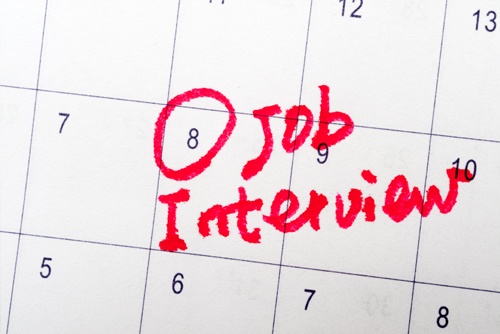
Tip1: Prepare well in advance
Preparation does not necessarily mean sitting down for hours trying to write slides. In fact you should start the process by simply thinking about the issues to clarify the messages in your own mind. This can take a few days of simply general brainstorming. Only once you have gathered your ideas should you actually start structuring your presentation.

Tip 2: Keep it simple
The most effective presentations are not the most complicated ones. Concentrate on a few key messages, but present them well. If you are given a title that is broad, it is sometimes better to select a specific aspect to talk about, rather than trying to cover too much on a large topic in a short space of time. If you do take on too much, you may be thorough, but you will end up with too much detail, which will present a confusing picture to the panel.

Tip 3: Do not overdo it on the visual aids
These should be used to summarise the main points but should not be used as a prompt for you. Remember: they are a teaching tool and will be used to assess your teaching skills. Do not write too much down. PowerPoint is not you aide-memoire. It is designed to make your audience's job easier, not yours! If everything is written down, it will look compact and confusing, you will end up reading the slides which will be boring from everyone and you will fail to make any impact. If you can use diagrams and pictures as well as words to make it look more lively.

Tip 4: Once you have a first draft, give it a run
If you are stumbling on your own words or if you feel that the only way you can sound confident is by speaking loudly, then it means your message is not clear in your head. Rework the content so that there is a more logical progression.

Tip 5: Get advice from someone who hasn't heard it before
Before you ask them what you should change (which they probably won't be able to tell you anyway, ask them to give some feedback as a listener. Which part of the presentation did they find boring? Which one did they enjoy? Ask them to give you the three things that they remember from your speech. If they only remember the trivial stuff, then your emphasis was wrong.
Worried about your consultant interview presentation?
Have you got a presentation to give at your interview?
Our consultant interview course gives you an opportunity to practise it in front of 6 other people and get constructive advice on how to improve content and delivery
Pre-Interview Hospital Visits

Should you make one and what are they for?
Pre-interview hospital visits are more or less an obligation, especially if you have been encouraged to make one! You should consider their usefulness from different perspectives:
They enable your future colleagues to see you in a more "relaxed" manner (or at least in a setting where you are not being stared at by 8 people). This may act in your favour provided you are able to create a favourable first impression as they may then be more lenient at the interview if they have a good feel for you.
They enable you to see what the environment is like and whether you would be a good match. Although a lot of people are over the moon to get the job, they sometimes regret it once they have joined the team as they feel uncomfortable or disappointed with either the nature of the job or the people. Use this opportunity to put some feelers out
They enable you to find out information about the place. At the end of the interview, you will most certainly be asked if you have any questions. Practically speaking, you should not have any! The reason is that you should have found out everything you need to know about the job and the place beforehand. This will give you good information that you can then use to sell your motivation at the interview itself.
What should you do?
In terms of what you should ask, this will very much depend on the nature of the job as well as that of the hospital. You should therefore plan your visit by looking at various aspects:
For example the hospital might have recently become a Foundation Trust. You might want to ask what prompted them to do this, how things have been going since, etc. If they have recently changed status, you might get a question on the subject and you will need to know what they feel about it and how it is going to affect them. That way, not only will you sound knowledgeable, you will also know if there are sensitive issues that you should not get into.
Choose and Book was introduced in January 2006 (after months of testing). If this is relevant to your specialty, you might want to ask how they are coping with it, what they think, etc. Again this will give you good clues for the interview and will make you look keen during the visit.
MMC is also a big topic. You can use the opportunity to ask them what they are doing in their department and how they expect this will impact on your position. You can use this opportunity to demonstrate how keen you are on teaching and getting involved in managerial issues such as assessments/appraisals.
Pre-interview hospital visits provide plenty of opportunities to show off but you should be really careful not to appear arrogant and cocky. Showing off will put you in a difficult position if they want someone who is just expected to toe the standard party line to start with. Instead you should use this opportunity to find out as much as you can about various issues that may turn up at the interview and to present a good image of someone who is keen without being imposing.
NEVER FORGET:The interview starts at the pre interview hospital visit. You need to create a good impression at that time to ensure that when you turn up for your consultant interview they already have a good idea of what a nice person you are. If you say anything you shouldn't say, you may never be able to make up for it, so play it safe.
Applying for a consultant post?
We discuss all the questions you should ask and how you can gain information from the pre-interview visit which will considerably enhance your own answers and presentation
